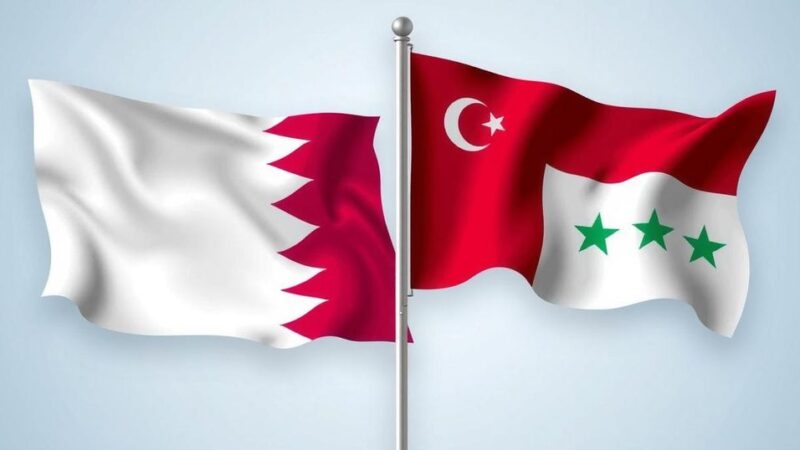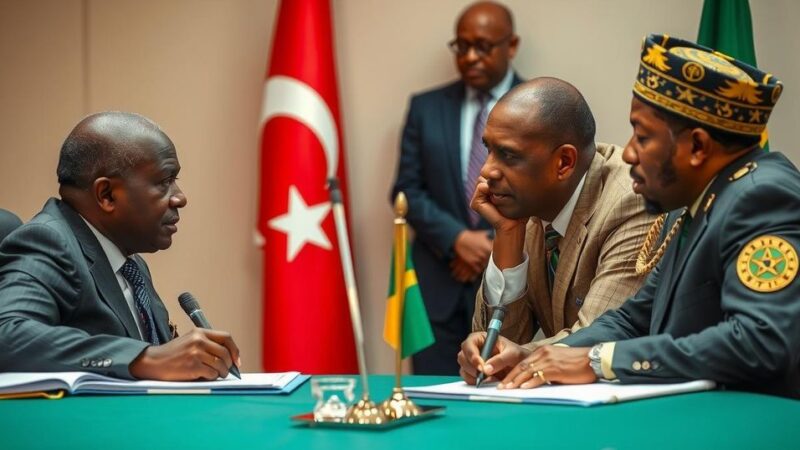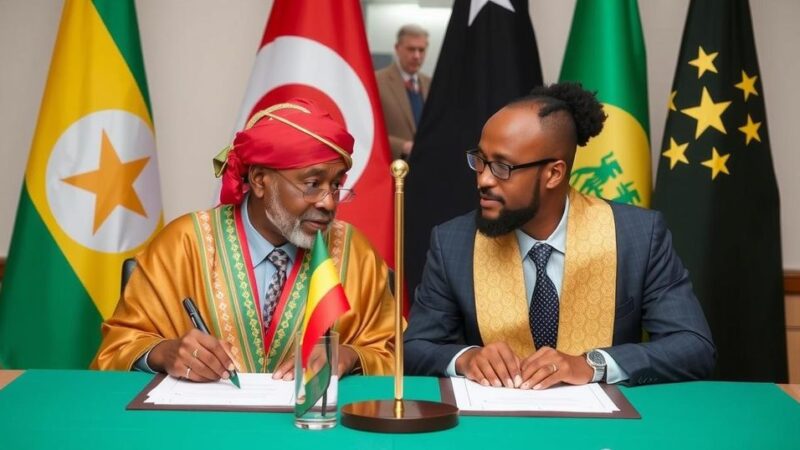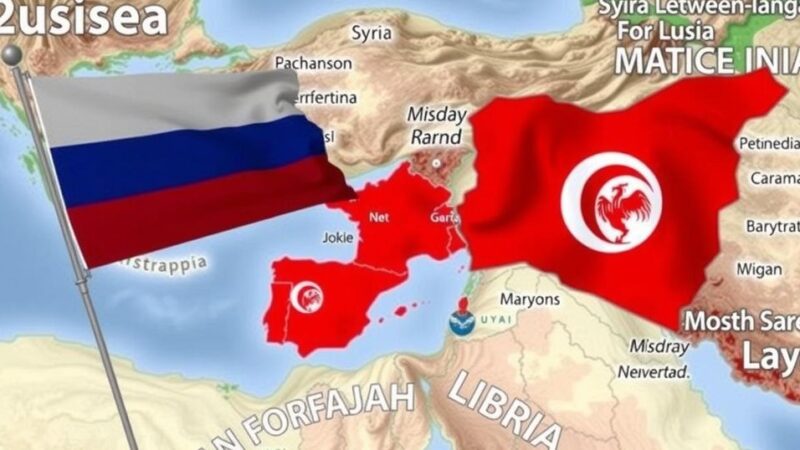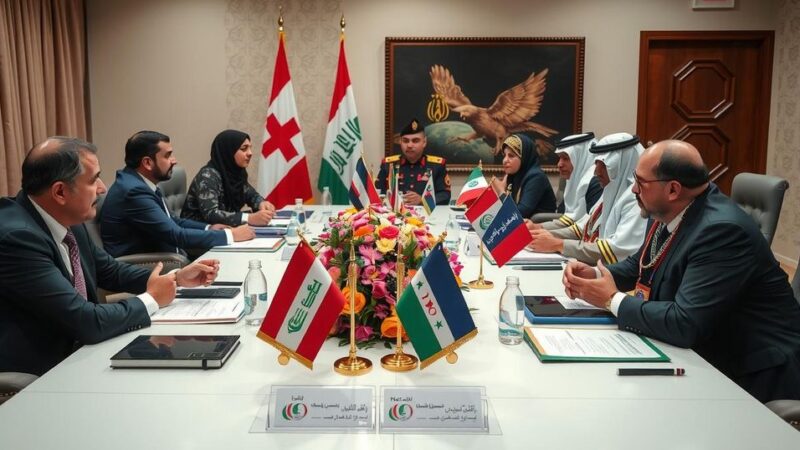Jordan’s Foreign Minister Ayman Safadi met with Ahmed al-Sharaa of Hayat Tahrir al-Sham on December 23, indicating a significant shift in Jordan-Syria relations post-Assad. Jordan seeks to ensure its border security amidst the ongoing refugee crisis and historical ties, while the U.S. maintains military involvement in Syria. Recent discussions in Aqaba reveal regional concerns over stability, drug trafficking, and arms smuggling posed by the Syrian conflict.
On December 23, Jordan’s Foreign Minister Ayman Safadi engaged with Syria’s new leadership, represented by Ahmed al-Sharaa of Hayat Tahrir al-Sham, following the fall of Bashar al-Assad’s regime. This meeting signals a pivotal shift in Jordan-Syria relations, as Jordan endeavours to realign its diplomatic ties amid a changing Syrian political landscape. Historically, Jordan has shared complex interactions with Syria and has hosted numerous foreign delegations regarding Syria’s future, demonstrating their vested interest in regional stability.
To underscore Jordan’s commitment to stabilizing Syria, Minister of State for Government Communication and official spokesman, Mohammad al-Momani, articulated that Jordan supports Syria’s sovereignty and security. With a significant border of 375km with Syria, Jordan remains vigilant against security threats exacerbated by the Syrian civil war, which has yielded a refugee crisis and heightened ISIS activities that posed challenges to Jordan’s internal stability.
The U.S. has also maintained a strategic presence in Syria via the Tanf garrison, which hosts the Syrian Free Army, a group Jordan has previously engaged with. U.S. interests in Tanf relate significantly to anti-ISIS operations and the broader implications of Iranian militias along the Jordanian border. Given the historical context, regional dependencies, and military dynamics, the Jordan-Syria relationship is poised for further evolution following Assads’s regime collapse.
On another note, Jordan recently conducted talks in Aqaba with eight Arab nations and other international stakeholders to discuss the situation in Syria, addressing concerns of chaos, arms smuggling, and drug trafficking that have persisted due to ongoing conflicts. Increased effectiveness in the new Syrian authority could potentially diminish such threats moving forward.
The geopolitical landscape surrounding Jordan and Syria has historically been intricate, characterized by fluctuating alliances and tensions. Since the onset of the Syrian civil war in 2011, Jordan has grappled with an influx of refugees, while also combating security threats from extremist groups like ISIS. Following the unexpected collapse of the Assad regime, neighboring countries must reassess their diplomatic approaches toward Syria to secure their borders and stabilize the region.
In conclusion, the meeting between Jordan’s Foreign Minister and Syria’s new leadership marks a crucial step in the shifting dynamic of Jordan-Syria relations. Jordan’s proactive stance in nurturing security and diplomatic ties reflects its need for stability amid regional instability. The evolving security situation, combined with Jordan’s historical connections, illustrates the complexities that will shape future interactions between the two nations and broader regional stakeholders.
Original Source: www.jpost.com



